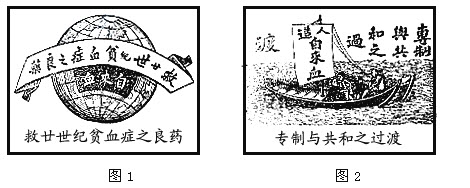In its everyday life, Italy is very much the man’s world. However, because of the Italian’s understanding of foreigners, the woman tourist is able to invade many of the male places that are prohibited to Italian women. These places include the cafè and the wine shop.
In the large cities the cafè is a combination of club and office. Here, for the price of a coffee, an Italian can read all the newspapers brought to him. And he can transact business, with the waiter producing pen, ink, and stamps as needed. Or if he wants, he can sit outside under a canvas covering before the door and enjoy the sight of beautiful women passing by.
The wine shop, as a rule, is a more vigorous place than the caf6, and is filled almost exclusively with men. Wandering singers, generally in groups of two or three, add to the noise of these places with their songs and music. Many of the songs are of a political character and make fun of the leading statesmen of Italy, America, England, France, and Russia. But the songs are generally showing off a spirit of mischief. And when the criticism is about America, the American tourists find themselves laughing as much as anyone else. The Italian is a master at making fun of you and making you like it.
The Italian men are deep-rooted gamblers. They have been brought up to it as children, but they are cautious gamblers and never go too much in it. The national lottery used to be one of the most popular forms of gambling. But later a football stake had taken away much of the interest in the lottery. But here the important thing is that gambling, the same as drinking, seldom goes to an Italian’s head and his bets are not really dangerous risks. Even at cards the Italian plays for low stakes, generally for a cup of coffee or wine.
In this world of the Italian male it would be careless if the romanticism of the Italian were neglected. The Italian might well be described as the world’s greatest romanticist. From any boat in Venice to any member of the government in Rome, the Italian is always aware of romance, of love and of the importance of being a good lover.
on the beaches of Italy, the visitor is aware that the Italian really live for romance. His manners, his compliments, his charm and his general way of behaving are those of a romanticist. Almost every Italian you meet is convinced that he is another Casanova.
Romance is as much a part of Italy as its art and its history. Perhaps the feeling of romance that wells up in you when you come to Italy is one of the greatest things that Italy has to offer a world that is tired of war and political intrigue. It is the ideal place for a honeymoon because hotel managers and waiters make you conscious of your own love and stress it in such a way that you feel more in love in this country than in any other.
"Almost every Italian you meet is convinced that he is another Casanova. CPara. 6)" According to the context, "Casanova" is most probably ().
A.a very mischievous man
B.a very romantic man
C.a man who enjoys wine
D.a man who enjoys music
参考答案:B
解析:
本题考的是对原文的理解能力。第五段全段都在说浪漫对意大利人的意义是如何重大,根据原文第六段,“His manners,his compliments,his charm and his general way of behaving are those of a romanticist.Almost every Italian you meet is convinced that he is another Casanova.”(他的仪态、他的赞美、他的魅力,以及他举手投足的风采,无处不显示他的浪漫主义气息。你所遇见的每一个意大利男人都深信,自己是卡萨诺瓦第二。)卡萨诺瓦是意大利冒险家,以所写的包括他许多风流韵事的《自传》而著称,Casanova意指非常浪漫的人,风流浪子,好色之徒。故选B。

